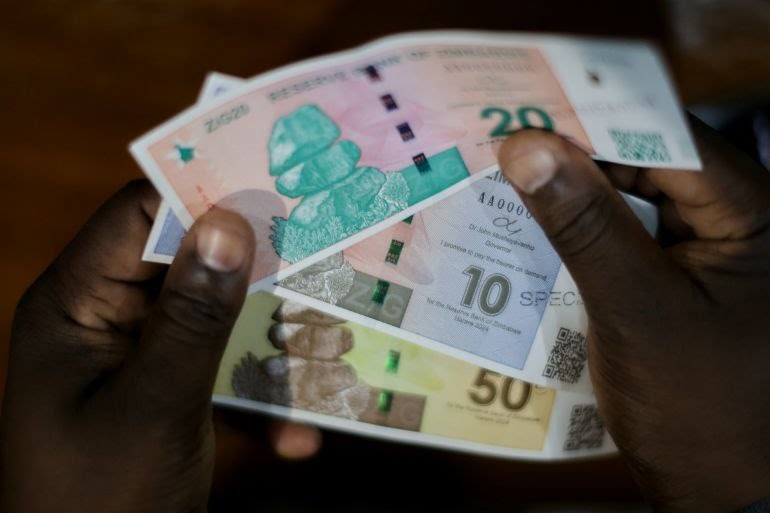Zimbabwe’s central bank has pumped $190 million into the foreign exchange market since April to meet increased demand for US dollars following the introduction of the new gold-backed currency, ZiG, a monetary policy committee member said on Monday.
This intervention aims to maintain economic stability as the country transitions away from dollar dependence.
“Initially there was not much need to intervene at the launch of ZiG,” Persistence Gwanyanya said in a phone interview with Bloomberg. “But now there has been, with the emerging volatilities, which show reduced dollarization in the economy from 85 per cent to 60 per cent.”
The southern African nation began using the ZiG, short for Zimbabwe Gold, in April, a move aimed at reducing dollar reliance (from 85 per cent to current 60 per cent).
As part of the so-called strategic intervention, in late July, the central bank announced it put $50 million into the market to meet demand for dollars among Zimbabwe’s lenders.
The Reserve Bank is using foreign-exchange proceeds collected from exporters to pump dollars into the market, Governor John Mushayavanhu stated last week.
Since the collapse of its national currency in 2009 due to hyperinflation, Zimbabweans have relied heavily on US dollars for everyday expenses. This economic predicament was largely a result of failed land reform policies that triggered a devastating economic crisis.
The recent introduction of the ZiG marks Zimbabwe’s sixth attempt to establish a viable local currency in the past 15 years.
“Dedollarizsation is happening faster than we expected,” Gwanyanya added. “We tend to experience these challenges, so we need to manage all the pressures.”
The ZiG trades at 13.86 per dollar on the official market, as per data posted Monday on the central bank’s website shows. The dollar fetches between 16 and 26 ZiG on the streets of the capital, Harare, according to ZimPriceCheck.Com, a website that tracks official and unofficial exchange rates.
Attribution: Bloomberg


